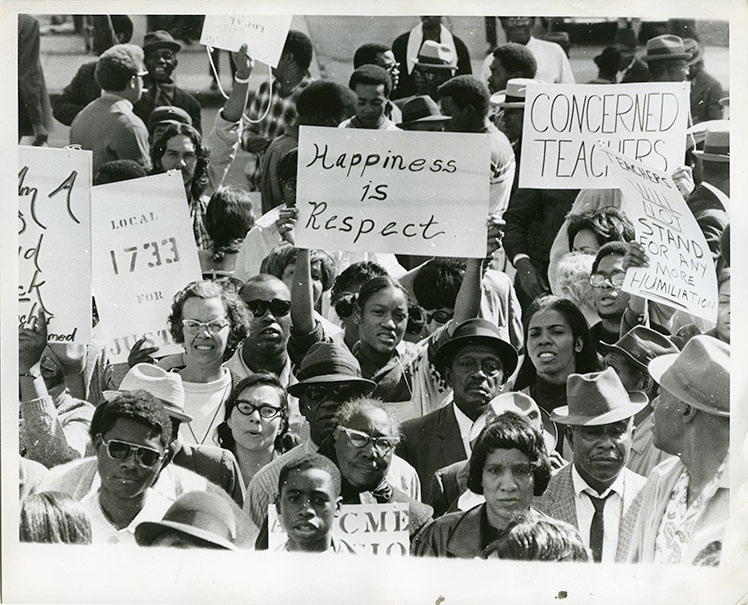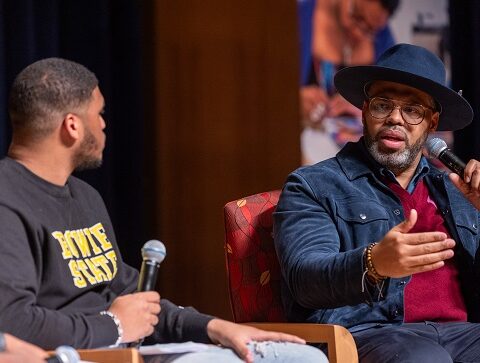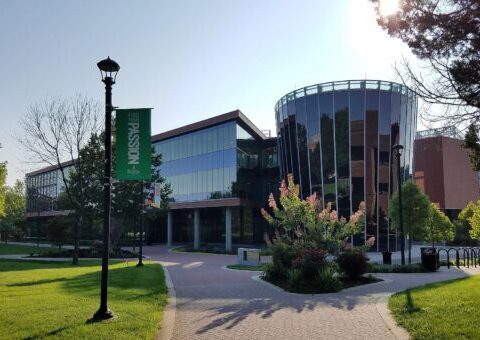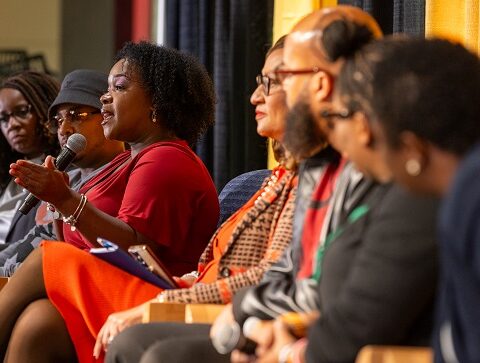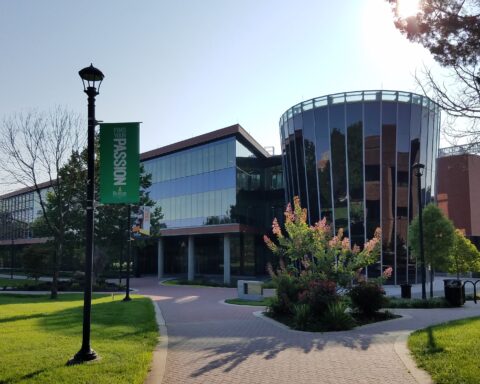By D. Thompson
The Tower Road Bus Documentary chronicles how integrating the Prince George’s County Schools through forced busing impacted and changed the lives of students, teachers, and a principal who all received their undergraduate or graduate degrees from Bowie State.
The film brings focus to the events that occurred 50 years ago surrounding school busing that reshaped education in the county, and will be screened on Thursday, Feb. 9, from 4:00 to 6:00 p.m. in the Fine and Performing Arts Center, Recital Hall.
A panel discussion following the screening will include BSU alumni Courtney Pringle ‘62, a retired Crestview Elementary School Teacher; Susie Proctor ‘62, a retired Crestview Elementary School Resource Teacher; Karmalita Contee ‘92, a student at Crestview; and retired Crestview Elementary School principal Dotson Burns Jr. ‘72. The writer and director of the film, Michael Streissguth, will also be on the panel.
In January of 1973, 20 black students who lived on Tower Road in Brandywine, MD were bused from their neighborhood school to Crestview Elementary School five miles away as part of the county’s efforts to comply with a federal court order to integrate the public schools. Although busing in Prince George’s County played a major role in desegregating the schools, it was at a cost for all those involved.
“Fifty years ago I was in the third grade attending Brandywine Elementary School when they began busing me and my friends from Tower Road to Crestview Elementary,” said Dr. Contee, Director of Private Scholarships and Grants at Bowie State. “Our parents asked for equality with the same opportunities and resources to learn, grow and succeed. What they got was integration which gave the impression of equality but in reality, simply met the letter of the law. Achieving equality has been a tougher and longer road than most expected,” she said.
School busing to achieve integration was very unpopular across the nation and in Prince George’s County in the early 1970s. Almost 85% of the residents were white with many opposing the action. Busing was so maligned that almost 15,000 people packed Rosecroft Raceway on January 14, 1973, to protest busing as Washington’s Football Team was about to take the field against the Miami Dolphins in Super Bowl VII.
Former Maryland State Delegate Susie Proctor has lived in Prince George’s County her entire life and worked in the schools for 34 years. She was a resource teacher at Crestview Elementary in 1973 and says the documentary amplifies county history.
“The Tower Road Bus Documentary like so many things in our history, brings to light what the kids experienced and how some of them were damaged psychologically,” said Proctor. “It is a classic example of what is a part of our history. The film gives acknowledgement and appreciation of what black students experienced while integrating our public schools.”
The documentary is the creation of writer and director Michael Streissguth who was a first grader at Crestview in 1973. Streissguth is white and a professor of communications and film studies at Le Moyne College. His motivation to develop the film spawned from the many new friends he met over the years who were bused to Crestview, a desire to understand their educational and emotional experience and to credit the principal, Dotson Burns Jr., as being the glue that held everything and everyone together.
“Dotson Burns Jr. is the main character in the documentary and was a trailblazer in the county school system in the late 1960s and 1970s,” said Streissguth. “His ability to bring people together and maintain calm during very unsettling times was remarkable. I am very appreciative of the friendships I developed with him and the students as a result of busing. But one of the most important things I have learned is that school integration had a price.”

